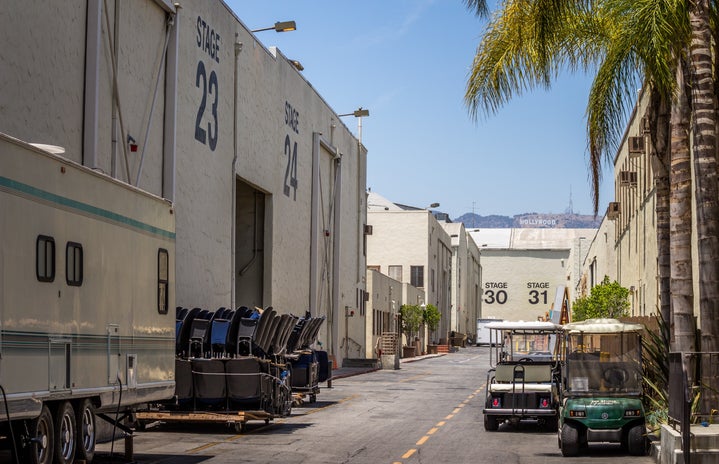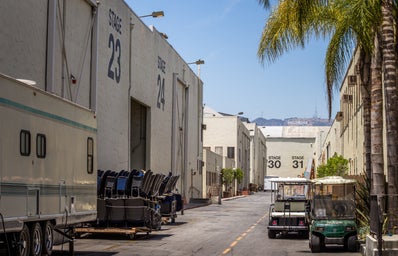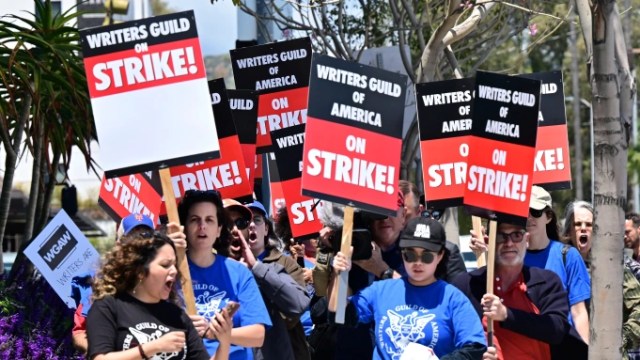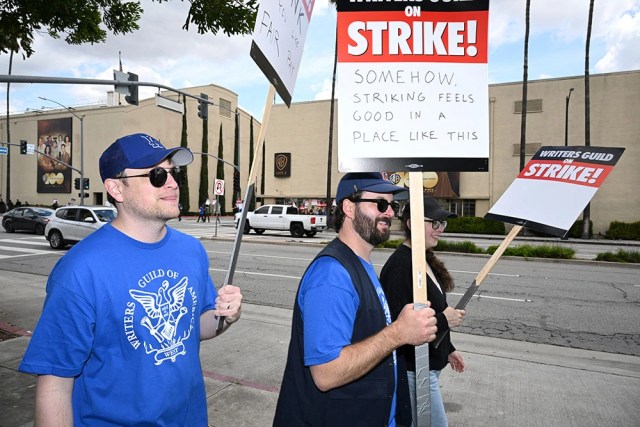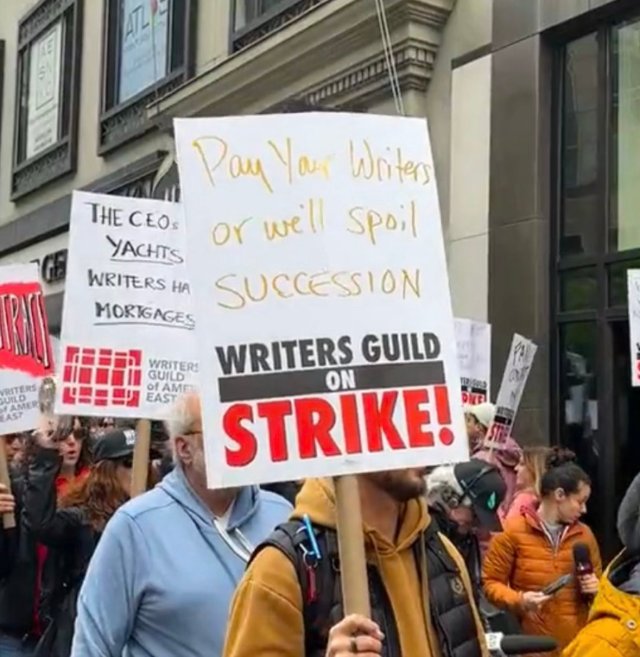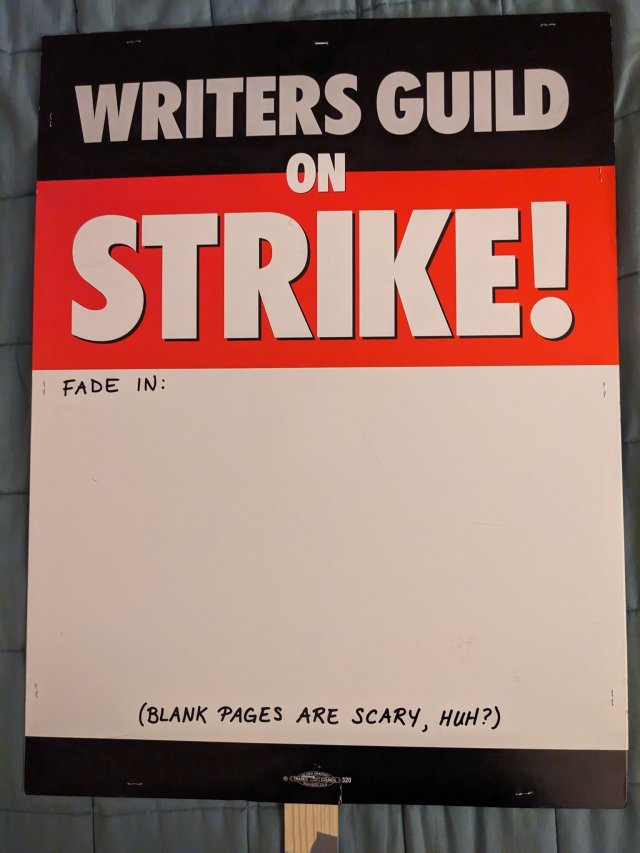It’s been impossible to avoid the news for the last few weeks: the Writers Guild of America is striking. I’ve been seeing all the hilarious signs writers have been coming up with on social media and hearing all about the strike in my classes. However, I’m sure not everyone is in a media related department like myself, so let me fill you in! Here are some of the reasons why the writers are striking:
Residuals
Residuals are payments writers (and other people in the entertainment industry) get as a means of compensation when the shows and movies they’ve written are shown in reruns and other similar formats. During the era where cable and network TV was the most prominent, this was a way for writers to get paid for their work for years after it first aired. However, we are now in an era where streaming dominates. As Eric Thurm says in a GQ article, “Streaming services pay single, fixed residuals that aren’t tied to viewer numbers, and there’s no additional payment that comes when shows shuffle between different streaming services.” Therefore, writers are seeking to “ensure that working on a streaming service pays out in a manner closer to traditional TV.”
Mini Rooms
Another issue that’s developed from streaming is something called mini rooms. Mini rooms are essentially writers rooms with fewer writers (usually only two or three) that are hired for shorter periods of time. This is typically before production on a show even begins, essentially separating the roles of writer and producer, which were previously more united. The writers are paid less and also get less experience, making it harder for them to work their way up to jobs like showrunner.
AI
Lastly, the issue of AI is something I’ve seen circulating a lot on social media in regard to the strike. Although this issue may be farther into the future than the previously listed issues, it is still looming on the horizon. Writers have concerns about AI for numerous reasons. First and foremost, there is potential for studios to use AI to create scripts, since many genres are highly formulaic. In that case, AI would do most of the work, with writers only being needed to edit and fine tune the scripts, lessening the necessity for writers even further than what we’ve already seen. On top of that, AI lacks an ability to recognize owned material and give proper credit, so there can be issues of plagiarism and copyright infringement. All of these things could contribute to writers losing their jobs and not getting paid and credited where they should be.
On top of all the issues listed above, the WGA is well aware of how their strike is impacting other workers in the industry, since many more people are unable to work due to the strike. They have been raising and pledging money to help those, other than writers, who are impacted by this, and so far have pledged over $1.7 million.
To close out this article, I feel like I have to include some pictures of some of my favorite signs from the strike so far. These are writers, of course the signs are going to be clever!
A reference to the incredible Nicole Kidman AMC commercial!
Threats to spoil all your favorite TV shows!
And of course, blank signs!
All jokes aside, this strike is incredibly important and could impact the next few years of media. Without writers, late night shows like Fallon, Kimmel, and SNL have already gone off air, soap operas will run out of scripts, and many productions will get pushed back due to incomplete scripts and picketing around sets. In the next few years, we may see a decline in the quality of some of our favorite shows, movies will be pushed back, and there could be a lack of content in general. But this is all so writers will be paid fairly for the work they do to entertain all of us.
